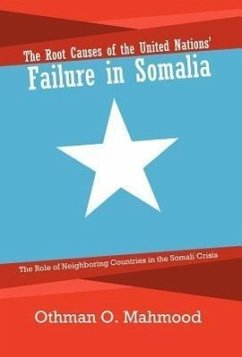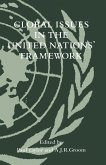When the Somali crisis broke out in the 1990s and the Somali central government collapsed, the United Nations made several attempts to mediate the conflicting parties. The crisis reached its highest climax, leading to the successful US-led Operation Restore Hope. Unfortunately, when the leadership of the operation was transferred to the United Nations, the UN-led intervention failed miserably leading to further unrest and destabilization. The Root Causes of the United Nations' Failure in Somalia, examines the events of the Somali crisis and dissects the reasons behind the failure. Author Mahmood focuses on three crucial factors that led to this turn of events often overlooked by many other scholarly studies. One, the UN representatives lacked the knowledge and understanding of the Somali clan system and peacemaking leadership in the Somali society. Two, neighboring countries, especially Ethiopia and Kenya, fueled and manipulated Somali's internal animosities. Three, international aid agencies had multiple layers of interests in the region and some of them had veiled interests in the continuation of the Somali crisis. Mahmood definitively shows that the United Nations had numerous golden opportunities to stabilize Somalia and reestablish governmental structures, yet still failed. The Root Causes of the United Nations' Failure in Somalia provides a much-needed contribution to the scholarship of this critical subject.
Hinweis: Dieser Artikel kann nur an eine deutsche Lieferadresse ausgeliefert werden.
Hinweis: Dieser Artikel kann nur an eine deutsche Lieferadresse ausgeliefert werden.








